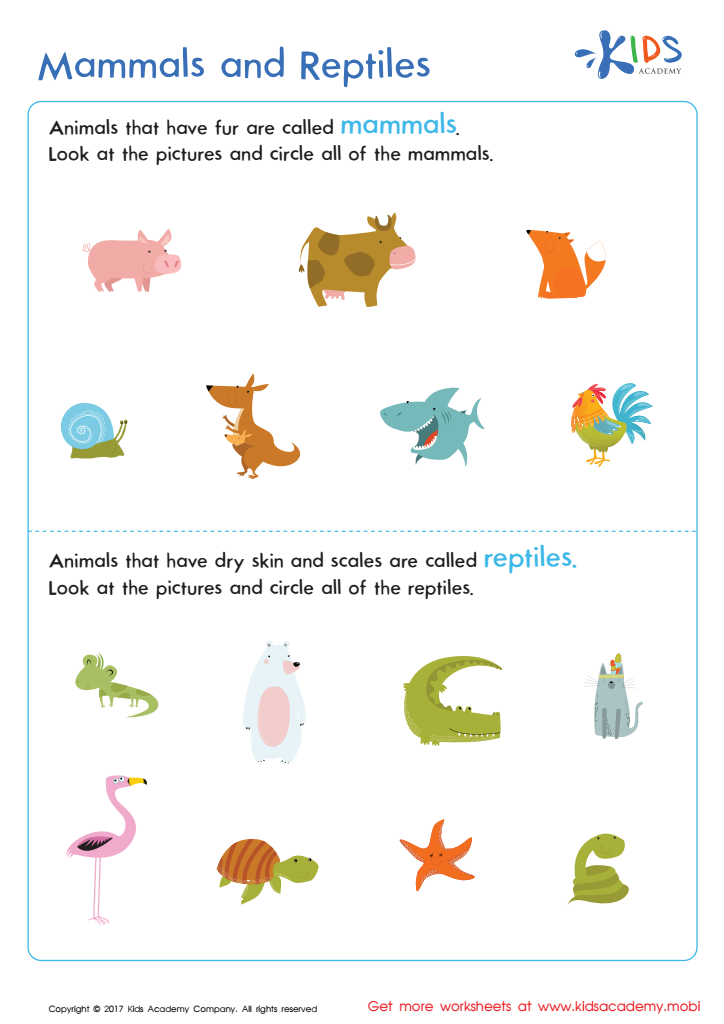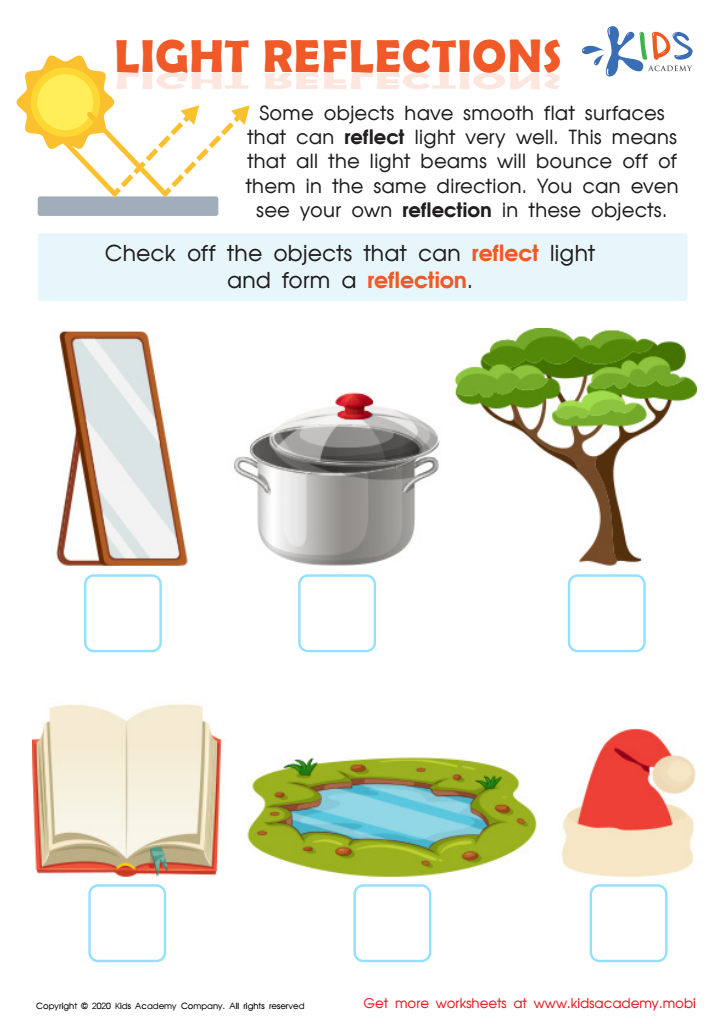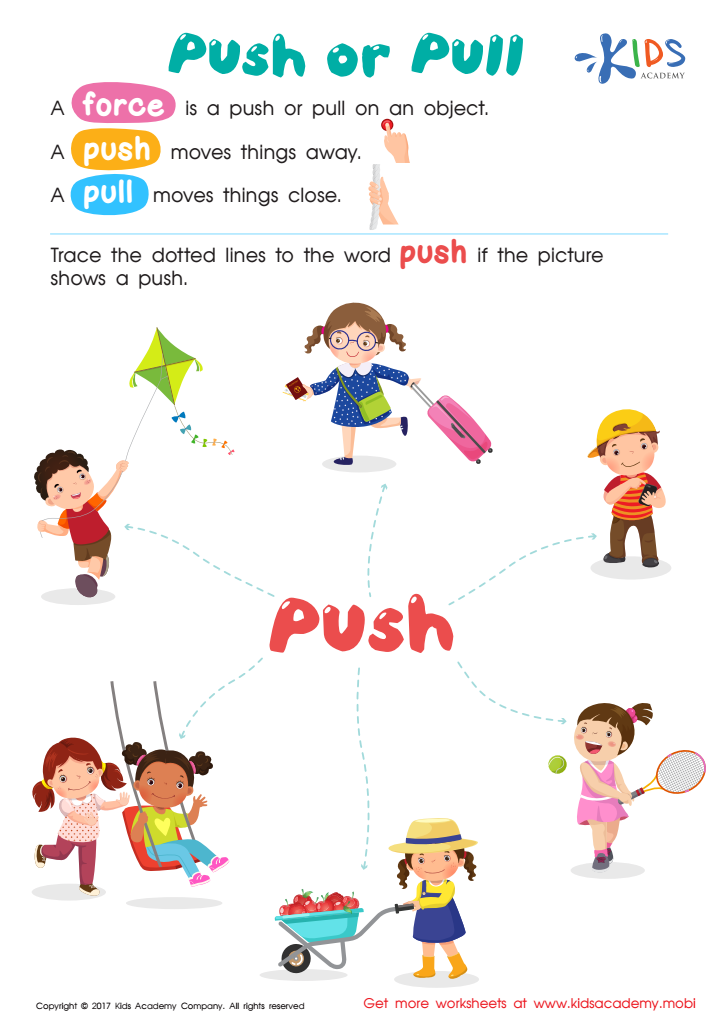Enhancing observational skills Normal Worksheets for Ages 4-6
3 filtered results
-
From - To
Our “Enhancing Observational Skills” worksheets are specifically designed for children aged 4-6. Each worksheet focuses on engaging activities that stimulate young minds to observe and analyze their surroundings meticulously. By identifying differences, matching objects, and recognizing patterns, children can enhance their attention to detail and critical thinking abilities. These fun and colorful exercises are not only educational but also entertaining, making learning an enjoyable experience. Perfect for both home and classroom use, our worksheets lay a strong foundation for lifelong learning and preparedness for school activities. Help your child develop essential skills while having fun with our expertly crafted resources.


Mammals and Reptiles Worksheet


Light Reflections Worksheet


Push or Pull Worksheet
Enhancing observational skills in children aged 4-6 is crucial for several reasons. At this developmental stage, children's brains are incredibly receptive and capable of rapid growth. Observational skills form the foundation for future learning, critical thinking, and problem-solving.
For parents and teachers, fostering these skills can significantly influence a child's cognitive development. When children practice observing their environment, they learn to identify patterns, make connections, and categorize information—all essential skills for academic success. Enhanced observational abilities can lead to better comprehension and retention of new concepts in subjects like science, math, and reading.
Moreover, strong observational skills support social and emotional development. By noticing subtle cues in facial expressions or body language, children can better understand and respond to others' emotions and social situations. This awareness fosters empathy and effective communication, critical components of healthy relationships.
Parents and teachers play a pivotal role in modeling and encouraging keen observation. Simple activities like nature walks, puzzles, or even discussing daily experiences can make a significant difference. Prioritizing observational skills in early childhood sets the stage for lifelong learning and adaptability, equipping children to navigate an increasingly complex world with curiosity and competence.
 Assign to My Students
Assign to My Students





















